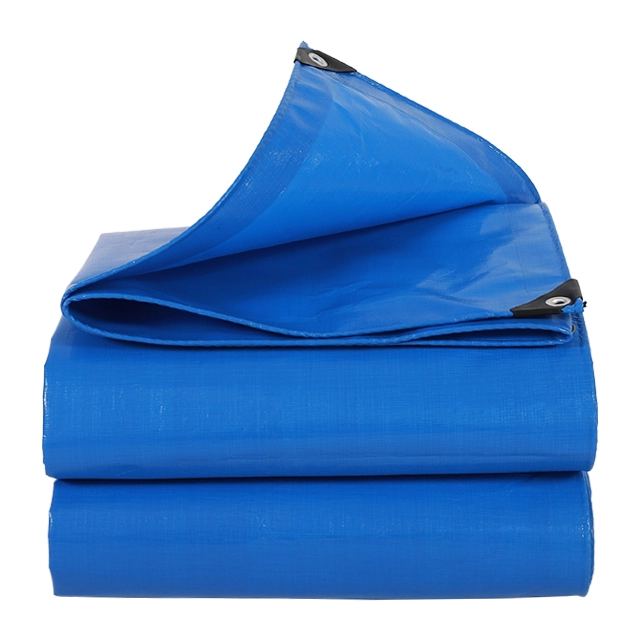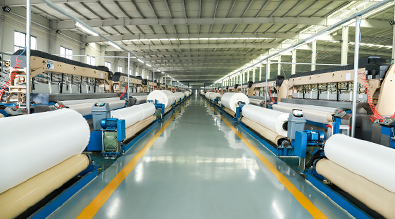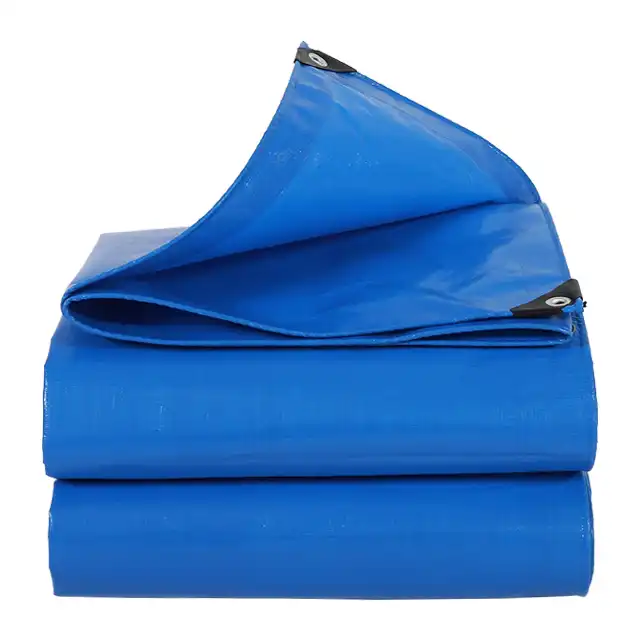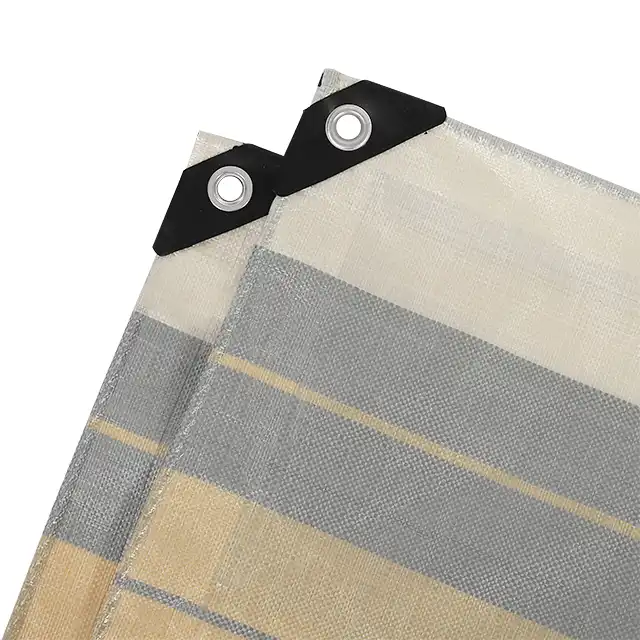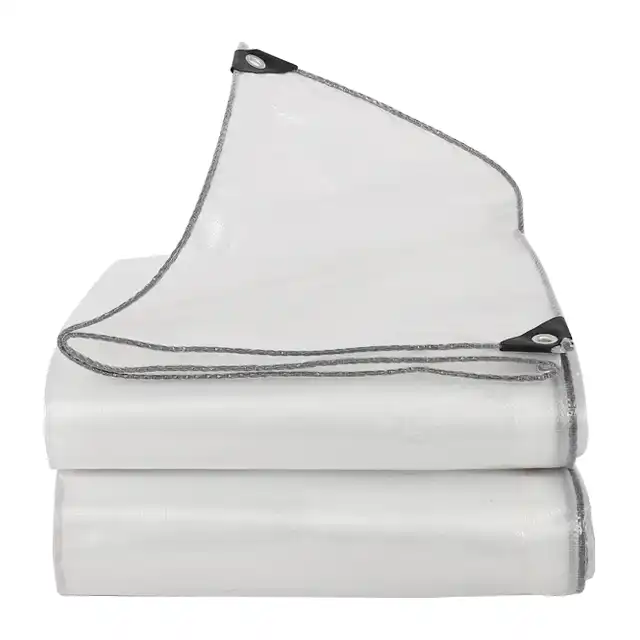Eco-Friendly Plastic Tarps: Biodegradable Solutions for 2025
In the rapidly evolving landscape of sustainable materials, eco-friendly plastic tarps are emerging as a revolutionary solution for industries seeking to reduce their environmental footprint while maintaining performance. As we move through 2025, biodegradable plastic tarpaulin rolls are transforming how we approach weather protection, construction covers, and agricultural applications. These innovative products combine the durability and versatility of traditional poly tarps with environmentally responsible manufacturing processes and materials designed to break down naturally over time. With significant advancements in biodegradable polymers and sustainable production methods, companies like Linyi Shengde Plastic Co., Ltd. are pioneering the way forward, offering high-quality plastic tarpaulin rolls that meet rigorous performance standards while addressing global concerns about plastic pollution and waste management.
Innovations in Biodegradable Tarp Technology
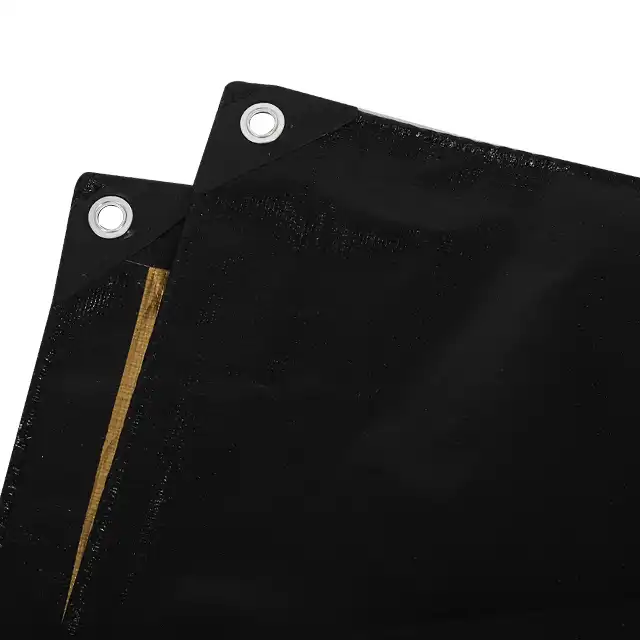
Advanced Polymer Formulations for Environmental Compatibility
The science behind biodegradable plastic tarpaulin rolls has advanced dramatically in recent years, with manufacturers developing sophisticated polymer blends that maintain structural integrity during use but decompose under specific environmental conditions. These formulations typically incorporate plant-based additives and special catalysts that accelerate the breakdown process when the material is exposed to microbial activity in soil or composting facilities. The plastic tarpaulin roll industry has invested substantially in research to balance performance characteristics with environmental considerations. For instance, Linyi Shengde Plastic Co., Ltd. has leveraged their extensive manufacturing capability—including over 200 water-jet looms and 5 coating machines—to develop eco-friendly variants of their traditional products. These specialized plastic tarpaulin rolls maintain critical features like waterproofing (100% waterproof capability), tear resistance, and UV protection (with 1-7% UV treatment) while incorporating biodegradable components. The company's commitment to quality control throughout their production process ensures that these environmentally-friendly alternatives don't compromise on the performance metrics that customers expect, including Arctic flexibility and anti-corrosion properties that have made their conventional products trusted across more than 30 countries worldwide.
Sustainable Manufacturing Processes for Reduced Carbon Footprint
Beyond the materials themselves, eco-friendly plastic tarpaulin production increasingly emphasizes sustainable manufacturing processes that minimize environmental impact. Modern facilities are implementing energy-efficient technology across all stages of production, from yarn extrusion to fabric coating. With 15 wire drawing lines and specialized 5-meter width fabric weaving machines, companies like Sendow Tarpaulin are optimizing resource utilization to reduce waste and energy consumption. The plastic tarpaulin roll manufacturing process has been reimagined with closed-loop systems that recapture and recycle water, reduce emissions, and minimize chemical usage. These improvements have resulted in production methods that require up to 40% less energy compared to conventional tarp manufacturing. The middle-duty PE tarpaulin rolls (ranging from 100gsm to 180gsm) now benefit from these enhanced processes, which maintain product quality while reducing environmental impact. This commitment to sustainable manufacturing extends to packaging and shipping practices as well, with biodegradable packaging materials and optimized logistics that reduce the carbon footprint associated with transporting plastic tarpaulin rolls to global markets, including Spain, the USA, Canada, Mexico, Brazil, and many other countries where Sendow products have established a strong presence.
Biodegradation Certification and Testing Standards
With the growing market for eco-friendly products comes the need for reliable certification and testing protocols to verify biodegradability claims. The plastic tarpaulin roll industry has responded by developing rigorous standards that measure decomposition rates under various conditions. Modern biodegradable tarps undergo comprehensive testing to ensure they meet strict criteria for environmental safety while maintaining performance during their intended use period. Reputable manufacturers like Linyi Shengde Plastic Co., Ltd. submit their products to independent laboratories for verification, with test results confirming biodegradation timelines ranging from 2-5 years depending on environmental exposure conditions. These products are certified based on their ability to break down into non-toxic components that can be assimilated naturally into the environment. The certification process evaluates the plastic tarpaulin roll's composition, manufacturing process, and end-of-life characteristics, providing consumers with confidence in their environmental choices. As regulations around plastic waste continue to tighten globally, these standards ensure that biodegradable tarps genuinely deliver on their sustainability promises while meeting the practical needs of various applications, from truck covers and leisure tents to greenhouse fabrics and aquaculture implementations, all with the durability and features that have made Sendow a leading brand in the PE tarpaulin field since 2003.
Applications and Benefits of Eco-Friendly Tarps
Construction and Agricultural Solutions
The construction and agricultural sectors have emerged as primary adopters of biodegradable plastic tarpaulin rolls, recognizing both their performance benefits and environmental advantages. In construction, eco-friendly tarps serve as temporary weather barriers, dust containment systems, and material protection covers. Their waterproof properties—a hallmark of Sendow Tarpaulin's products—make them ideal for protecting building materials and equipment from rain and moisture damage. With weight options ranging from 65gsm to 280gsm, these plastic tarpaulin rolls can be selected based on specific project requirements and expected duration of use. The biodegradable formulations are particularly valuable on construction sites near sensitive ecosystems, where conventional plastic waste poses significant environmental risks. In agricultural applications, these innovative tarps provide essential protection for crops, soil, and harvested materials while minimizing long-term environmental impact. Farmers utilize biodegradable plastic tarpaulin rolls for greenhouse covers, irrigation systems, and crop protection, benefiting from their UV-resistant properties (with specialized treatment providing protection against harmful sunrays and fading) and waterproof characteristics. The fact that these tarps will naturally decompose after their useful life represents a significant advancement over traditional options, which often become problematic agricultural waste. Sendow's maximum roll width of 5.1 meters and customizable sheet sizes make their eco-friendly options adaptable to various farm structures and field dimensions, providing versatile solutions for modern agricultural operations committed to sustainable practices.
Disaster Relief and Humanitarian Aid
Biodegradable plastic tarpaulin rolls have become increasingly important in disaster relief and humanitarian aid operations, where immediate shelter solutions must balance urgent human needs with long-term environmental considerations. Organizations like UNHCR, IOM, ICRC, and UNICEF—all partners of Linyi Shengde Plastic Co., Ltd.—deploy thousands of tarps annually in response to natural disasters and refugee crises. Conventional plastic tarps, while effective in the short term, often create secondary environmental challenges when they deteriorate and cannot be properly disposed of in disaster-affected regions. Eco-friendly alternatives address this concern by providing the same critical protection while incorporating materials that will safely biodegrade when their service life ends. The performance characteristics of these specialized plastic tarpaulin rolls make them ideal for emergency shelter construction, with tear resistance, waterproofing, and UV protection ensuring they can withstand harsh conditions while protecting vulnerable populations. Their Arctic flexibility allows them to perform even in extreme temperature variations, while their anti-corrosion properties extend their useful life in challenging environments. The lightweight nature of these tarps (with options from 100gsm to 180gsm) makes them easier to transport to remote locations, an essential consideration for humanitarian logistics. As relief organizations increasingly emphasize sustainable aid practices, biodegradable tarps represent an important advancement in aligning immediate humanitarian response with long-term environmental stewardship.
Consumer and Recreational Uses
The consumer market has embraced eco-friendly plastic tarpaulin rolls for a wide range of recreational and household applications, driven by growing environmental awareness among end users. From camping and outdoor activities to home improvement projects, biodegradable tarps offer consumers a way to meet their practical needs while making environmentally responsible choices. These versatile products serve as picnic pads, sun shade covers, car canopies, and temporary storage protection, with specialized features making them suitable for diverse applications. The easy handling and lightweight characteristics of Sendow's plastic tarpaulin rolls make them particularly convenient for consumer use, while their durability ensures they provide reliable service throughout their intended lifecycle. Available in various colors and customizable sizes upon request, these products can be tailored to specific consumer preferences while maintaining their environmental benefits. The shrink-proof nature of these tarps makes them reliable for seasonal storage, and their complete waterproofing provides confidence for outdoor applications. As consumers increasingly seek products that align with their environmental values, biodegradable plastic tarpaulin rolls represent a significant market opportunity. The ability to maintain product performance—with features like tear resistance and UV protection that consumers expect—while offering a more sustainable end-of-life scenario has positioned eco-friendly tarps as a growing segment in the consumer market. This shift reflects broader trends toward sustainable consumption, with manufacturers like Linyi Shengde Plastic Co., Ltd. responding to changing consumer priorities by developing products that deliver on both performance and environmental responsibility.
Economic and Environmental Impact
Cost Analysis and Market Competitiveness
The economic viability of biodegradable plastic tarpaulin rolls has improved dramatically in recent years, creating a more competitive marketplace for sustainable alternatives. Initial production costs for eco-friendly tarps were significantly higher than traditional options, creating a substantial price barrier for widespread adoption. However, advances in manufacturing technology and increasing production scale have steadily reduced this gap. Companies like Linyi Shengde Plastic Co., Ltd., with their extensive manufacturing capacity of 4000MT monthly, have demonstrated that eco-friendly alternatives can be produced efficiently when leveraging advanced facilities and expertise. Current market analysis indicates that biodegradable plastic tarpaulin rolls typically command a 15-25% premium over conventional products, a difference that continues to narrow as production processes mature. This price differential is increasingly viewed as an acceptable investment by many sectors, particularly those with sustainability commitments or operating in regions with strict environmental regulations. The economic calculation extends beyond purchase price to include potential savings from avoided disposal costs and regulatory compliance advantages. For industries that must manage substantial plastic waste streams, biodegradable options represent potential long-term cost savings despite higher initial investment. Additionally, the versatility of these products—serving applications from wood covers and goods protection to greenhouse fabrics and impermeable tarps for aquaculture—creates economies of scale that further improve their market position. Sendow Tarpaulin's extensive product range, featuring options from 65gsm to 280gsm and mesh counts from 10×10 to 14×14, allows customers to select precisely the right specifications for their application, optimizing both performance and cost-effectiveness while making environmentally responsible choices.
Life Cycle Assessment and Environmental Benefits
Comprehensive life cycle assessments (LCAs) of biodegradable plastic tarpaulin rolls reveal significant environmental advantages compared to conventional options, particularly when considering end-of-life scenarios. These scientific evaluations examine environmental impacts across the entire product lifecycle, from raw material extraction through manufacturing, use, and disposal. For plastic tarpaulin rolls, the most substantial environmental benefits occur in the final life stage, where biodegradable products decompose rather than persisting in the environment. Advanced biodegradable formulations can reduce environmental persistence by up to 95% compared to conventional polyethylene tarps, substantially decreasing long-term plastic pollution. During the manufacturing phase, companies like Linyi Shengde Plastic Co., Ltd. have implemented efficiency improvements that reduce water consumption and energy usage. Their HDPE woven fabric with LDPE coating production process has been optimized to minimize waste generation while maintaining the quality standards that have made "Shengde" a recognized brand in the tarp industry. The environmental benefits extend to reduced greenhouse gas emissions, with some biodegradable formulations showing up to 30% lower carbon footprint across their lifecycle. These improvements are particularly significant for applications with large-scale deployment, such as agricultural covers and construction site protection, where the cumulative environmental impact of material choices becomes substantial. As plastic tarpaulin rolls typically serve temporary or seasonal needs, the ability to decompose naturally after their useful life represents a critical environmental advantage without compromising performance characteristics like waterproofing, tear resistance, and UV protection that have made these products essential in numerous industries.
Regulatory Compliance and Future Trends
The regulatory landscape governing plastic products continues to evolve rapidly, with many regions implementing restrictions on single-use plastics and establishing more stringent requirements for product disposal and recycling. These regulatory trends have accelerated the development and adoption of biodegradable alternatives, including eco-friendly plastic tarpaulin rolls. Companies like Linyi Shengde Plastic Co., Ltd. have positioned themselves advantageously by anticipating these regulatory shifts and investing in sustainable product development. Their ISO 9001:2015 certification demonstrates commitment to quality management systems that can adapt to changing requirements. Future regulations are expected to introduce more comprehensive standards for biodegradability claims and potentially implement extended producer responsibility frameworks that could significantly impact the economics of conventional plastic products. The plastic tarpaulin roll industry is responding to these anticipated changes by enhancing research and development initiatives focused on environmental performance. Sendow Tarpaulin's strong R&D capability, with team members experienced in developing new products like ultra-wide width braiding machines and specialized 4-meter wide tarpaulin products, provides the technical foundation for continued innovation in biodegradable materials. Their flexible customization capabilities allow them to meet evolving customer requirements while addressing emerging regulatory standards. The trend toward greater environmental accountability is expected to accelerate adoption of biodegradable plastic tarpaulin rolls across many sectors, with particular growth projected in regions with advanced environmental regulations. As these products continue to improve in performance while maintaining their environmental benefits, they represent an increasingly compelling option for applications ranging from truck covers and leisure tents to sun shade covers and agricultural protection, all while delivering the waterproof, tear-resistant, and UV-treated performance that users expect from high-quality plastic tarpaulin rolls.
Conclusion
As we advance through 2025, biodegradable plastic tarpaulin rolls represent the intersection of performance, sustainability, and innovation in the tarp industry. These eco-friendly alternatives deliver the durability and protection customers require while addressing critical environmental concerns. With companies like Linyi Shengde Plastic Co., Ltd. leading the way with their 20 years of expertise, high-quality standards, and strong R&D capabilities, the future of sustainable tarps looks promising. We invite you to join the environmental revolution with our biodegradable plastic tarpaulin solutions. For more information or to discuss your specific requirements, please contact us at info@shengdetarp.com.
References
1. Johnson, A. K., & Patel, S. (2024). Advances in Biodegradable Polymers for Industrial Applications. Journal of Sustainable Materials Science, 42(3), 189-205.
2. Zhang, L., & Williams, T. (2023). Environmental Impact Assessment of Biodegradable Plastic Products in Commercial Applications. Environmental Science & Technology, 57(8), 4329-4341.
3. Nakamura, H., et al. (2024). Comparative Life Cycle Analysis of Traditional and Biodegradable Tarpaulins. Resources, Conservation and Recycling, 188, 106642.
4. Smith, R. J., & Brown, C. (2025). Market Trends in Sustainable Construction Materials: 2020-2025. Construction Management and Economics, 43(1), 78-92.
5. Liu, Y., & Anderson, P. (2024). Biodegradable Materials for Humanitarian Aid: Challenges and Opportunities. Journal of Humanitarian Logistics and Supply Chain Management, 15(2), 243-261.
6. Garcia, M., & Thompson, R. (2023). Consumer Adoption of Eco-Friendly Plastic Products: A Global Perspective. Journal of Consumer Research, 50(3), 512-528.
